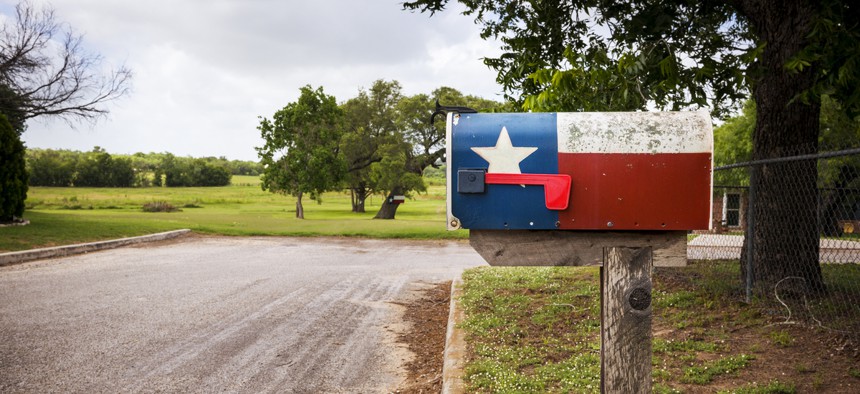
Did you know the official state motto of Texas was "friendship"? Shutterstock.com
The Most Shocking Abuse Allegations Against Shelters For Immigrant Children
"There were reports of sexual abuse and staff making developmentally disabled girls fight for snacks."
Separating the children of immigrants from their parents under the Trump administration’s now-rescinded “zero tolerance” policy was devastating in its own right. But one of the most horrific consequences of the policy is that it’s put those children into the care of government-funded shelters accused of neglect and child abuse.
An investigation conducted by The Texas Tribune and Reveal, published Wednesday (June 20), found that more than $1.5 billion of taxpayer money has gone to fund private companies operating shelters for migrant children that have been accused of “serious lapses in care, including neglect and sexual and physical abuse.” One shelter in particular, the Shiloh Treatment Center in Manvel, Texas, has come under the spotlight for medical mistreatment of children. Yet the government has continued to funnel unaccompanied migrant children who cross the border to those shelters, along with some of the more than 2,000 children who have been split from their parents since the White House enacted its “zero tolerance” policy in May.
Here are some of the most disturbing abuse allegations at the Shiloh Treatment Center and other facilities where migrant children are being detained, according to an ongoing class-action lawsuit against the federal government that draws on anonymized testimony.
Four children at one shelter died of asphyxiation because of physical restraints
“The Daystar facility in Manvel, Texas had a capacity of 141 children. Between 1993 and 2002, three teenagers died at Daystar from asphyxiation due to physical restraints. In most cases, the children were hog-tied. Beyond these deaths, there were reports of sexual abuse and staff making developmentally disabled girls fight for snacks. Numerous stakeholders, including the district attorney, spoke out against Daystar, but the facility kept its license. In November 2010, a fourth child died in what was ruled a homicide by asphyxiation due to physical restraints. Daystar’s license was still not revoked until January 2011.”
The staff at Shiloh subjected children to verbal abuse
One child says:
“Some of the staff at Shiloh would provoke the children there and make us angry intentionally. They made us act violently so then we had to be given shots. The staff would insult us and call us names like ‘son of a whore.’ They often did it in English but I understood some English so I would know what they were saying and get really angry.”
Shiloh forced children to take psychotropic drugs
“[Redacted name] was transferred to Shiloh RTC in June of 2016 where he remained until December 2016. … During his time at Shiloh RTC, was placed on numerous psychotropic medications. … This combination of drugs includes four different classes of medication, the majority of which, four of the six, are antipsychotics with very limited FDA-approved uses in children and adolescents. The use of multiple antipsychotic medications at the same time is inconsistent with medical guidelines. … In addition to the regular psychotropic medications he was placed on, was forcibly medicated on several occasions at Shiloh RTC, as well. … An independent psychologist who evaluated concluded that the multiple diagnoses was assigned while at Shiloh RTC were not justified based on his behavior and clinical presentation. … These diagnoses resulted in the prescription of inappropriate medications that had adverse side effects, including weight gain of almost 100 pounds.”
Children are handcuffed and kept in small cells, receiving just one hour outside each day
“Youth in secure facilities report being handcuffed, locked in cells, and pepper sprayed … Children strapped into chairs, and bags placed over their heads; one youth thought, ‘They are going to suffocate me.'”
The Office of Refugee Resettlement unnecessarily keeps children in shelters for weeks, months, or even years
One anonymous youth says:
“I was supposed to be released [to my dad] at the end of this month, but I was told that I am a bit aggressive, so I am still here. My brother was murdered recently, so I have been more sad than normal.”
The mother of a son held at a facility says that she was asked to prove that she didn’t have cancer before her son would be released:
“I believe that a mother has a right to take care of her son, even if she is incapacitated, although I am not. It occurred to me that they were looking for an excuse to deny me my son.”






